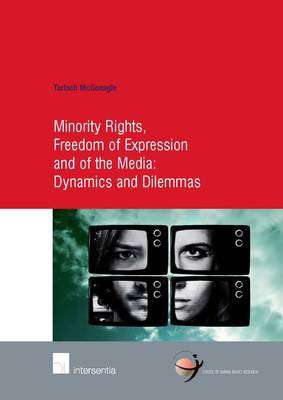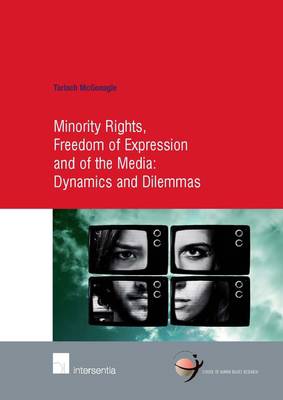
- Retrait gratuit dans votre magasin Club
- 7.000.000 titres dans notre catalogue
- Payer en toute sécurité
- Toujours un magasin près de chez vous
- Retrait gratuit dans votre magasin Club
- 7.000.000 titres dans notre catalogue
- Payer en toute sécurité
- Toujours un magasin près de chez vous
Minority Rights, Freedom of Expression and of the Media: Dynamics and Dilemmas
Volume 44
Tarlach McGonagle
109,00 €
+ 218 points
Description
This book offers a rigorous, theory-based, and uniquely comprehensive analysis of European and international legal standards shaping minorities' right to freedom of expression. The analysis pays particular attention to the instrumental role played by traditional and new forms of media in ensuring that the right to freedom of expression of persons belonging to minorities is effective in practice. The relevant international legal framework is set out in detail, including a careful examination of the relationship between generalist and minority-specific international human rights instruments. Attention is paid to the historical circumstances in which key instruments were developed and to the contemporary context in which they are now being interpreted. The analysis is also informed by an awareness of institutional and political dynamics. All of this forms the basis for the book's central objective: to mount a critical evaluation of the existing international legal framework governing freedom of expression for minorities, while drawing on theoretical insights gained from human rights scholarship and communications science. The first major focus of the evaluation is the regulation and restriction of expression to protect minority rights, in which issues - such as pluralism, tolerance, and "hate speech" - are centrally featured. The book's second major focus - the regulation and facilitation of expression to promote minority rights - explores cultural and linguistic rights and media access questions. (Series: School of Human Rights Research - Vol. 44) *** "McGonagle's book is an invaluable read for anyone researching minority rights and freedom of expression and of the media under international or European laws." - NYU Journal of International Law and Politics, Volume 45, Issue 3, 2013
Spécifications
Parties prenantes
- Auteur(s) :
- Editeur:
Contenu
- Nombre de pages :
- 668
- Langue:
- Anglais
- Collection :
Caractéristiques
- EAN:
- 9789400002159
- Date de parution :
- 25-10-11
- Format:
- Livre broché
- Format numérique:
- Trade paperback (VS)
- Dimensions :
- 170 mm x 244 mm
- Poids :
- 1161 g







